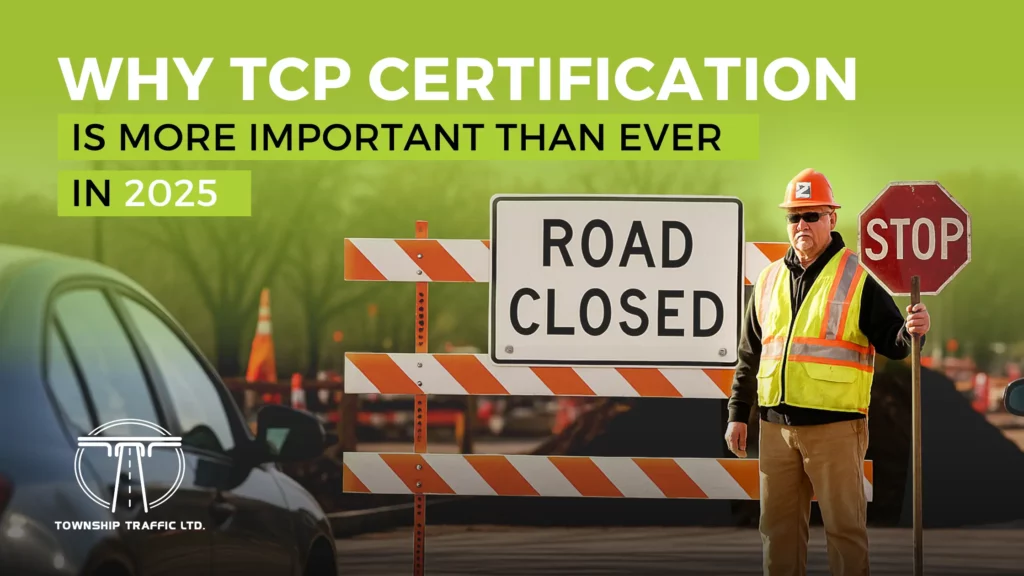In 2025, as infrastructure projects surge across British Columbia—from major highway expansions to rapid urban development having a certified Traffic Control Person (TCP) on site is more essential than ever. Effective traffic control is critical to protecting workers, motorists, and pedestrians, especially in high-traffic areas like Surrey, Abbotsford, and Langley.
Whether you’re a contractor, city planner, or someone looking to build a career in traffic management, understanding the value of TCP certification is key to meeting safety regulations, staying compliant with WorkSafeBC standards, and maintaining a professional job site. In this blog, we’ll break down why TCP certification in BC matters more than ever in 2025—and how trusted local providers like Township Traffic help keep British Columbia’s roads safe, efficient, and compliant.
What Is TCP Certification?
TCP (Traffic Control Person) Certification is a mandatory qualification for anyone looking to work in traffic control across British Columbia. This certification is overseen by WorkSafeBC and delivered through accredited training institutions to ensure every traffic control professional is fully prepared for the job.
The certification process equips individuals with the knowledge and hands-on skills needed to manage traffic safely and efficiently. Training typically includes:
- Understanding safety procedures and legal responsibilities
- Proper use of traffic control signs, signals, and equipment
- Clear communication techniques for high-pressure situations
- Emergency response protocols
- Practical, real-world simulations and assessments
Once certified, TCPs play a crucial role in directing traffic around construction zones, road closures, utility worksites, and other temporary disruptions. Their presence helps reduce risks, prevent accidents, and keep both workers and the public safe.
Why TCP Certification Matters More Than Ever in 2025
1. Surge in Infrastructure Projects Across BC
Thanks to increased federal and provincial investment, 2025 has brought a major wave of infrastructure development across British Columbia. Cities like Abbotsford, Surrey, Langley, and Chilliwack are seeing rapid growth in roadwork, utility upgrades, and new construction. With more crews on the ground, the need for certified Traffic Control Persons (TCPs) is rising fast. Trained professionals are essential for managing busy and often hazardous traffic environments safely and effectively.
2. Tougher WorkSafeBC Compliance Standards
WorkSafeBC has tightened its safety regulations in 2025, particularly in high-risk job sites and urban work zones. Employers are now under greater pressure to ensure every on-site worker, including subcontractors, has a valid TCP certification. This isn’t just about ticking boxes—non-compliance can lead to steep penalties, delayed timelines, and even full project shutdowns. Certification is no longer optional—it’s a must for anyone involved in traffic control across BC.
3. Safety First: Protecting Workers and the Public
In high-traffic areas throughout the Fraser Valley and Lower Mainland, properly trained traffic control personnel play a critical role in preventing accidents and keeping job sites safe. TCP-certified workers are trained to:
- React quickly to hazards and changing traffic conditions
- Guide motorists, pedestrians, and cyclists safely around work zones
- Communicate clearly with crews and emergency responders
Minimize disruptions while maintaining safety for everyone involved









